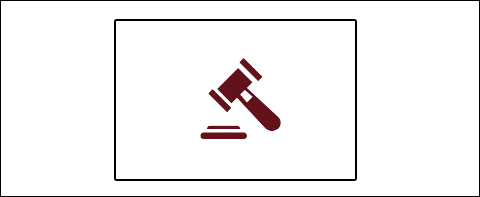In times of financial crisis such as now we find that consultations about legal proceedings for debt collection /recovery at professional offices and Law firms are becoming more and more frequent. This week we would like to provide some concepts and a basic explanation about the different legal procedures for debt collection in Spain.
It is undoubtedly recommended, in the first place, to try to recover the debt in a friendly manner and out of the Court when possible.
Unfortunately, in those cases when the above is not possible and thus we are forced to start a legal proceeding; it is very important to determine first the solvency and the real possibilities of receiving the payment in the event of a favourable Court Order. Conducting research on the debtor / future defendant’s assets is highly recommended. The searches are regularly carried out in public registries. Such as Land Registry, Moveable Assets Registry, Company House, etc, to determine if any property, asset or right can eventually be charged and sold at a public auction to pay for the debts.
When the debtor has no assets, it could be advisable not to take any court action even though we might, sometimes have, a very good chance of obtaining from the Court a decision in our favour.
If the decision made is to start a legal proceeding, then there are, as per Spanish Law, different ways to proceed according to type, amount, and nature of the debt.
1.) SPECIAL PROCEDURES:
Thus, Spanish Law foresees some court proceedings, which are faster and convenient for the creditor claiming, when the debt is recognized or documented in some kind of legal instruments or agreements:
1.1) Enforcement or Execution Procedure (procedimiento ejecutivo)
It is possible to directly start this process against the debtor and his assets when our credit is fully documented in public deeds, commercial policy contracts formally signed, etc. This proceeding simplifies the debt collection, and it is much faster than the standards ones. Thus, we recommend, for example that if you give out a loan or a credit, you should try to document in a Public Deed at the time of signing, since in the case of lack of payment it will be a lot easier to recover the debt, just as banks do when giving a mortgage loan.
1.2) Exchange Procedure (procedimiento cambiario-articles 819 to 827 of LEC):
this proceeding is used for claims based on bills of exchange, promissory notes and cheques and even though the defendant may object to the claim, once the proceeding is admitted, the Court can order directly to freeze all the assets of the defendant since the idea is to provide special protection to these instruments. As previously stated, in case of debt, our recommendation is to have it documented in bills of exchange, promissory notes and cheques.
2.) STANDARD PROCEDURES
In case of not having your credit documented in any of the previously mentioned special ways, we would then, generally, have to start a Standard Civil Declarative Procedure (procedimiento civil declarativo) which according to the amount of the debt can be an Ordinary Procedure ( Ordinario), when the debt is over 6000 € or a Verbal Procedure, when the debt is 6000€ or less, being the Verbal significantly faster than the Ordinary. We must not forget that these procedures may finish with a Court Order declaring our rights to recover the debt but if the debtor does not voluntarily comply with the Order, an Enforcement or Execution Procedure (before mentioned) must be initiated to force compliance.
PROCEDIMIENTO MONITORIO
But usually in debt collection matters the real Star is undoubtedly the Payment Procedure (PROCEDIMIENTO MONITORIO) which allows the creditor in first place and without the need of a lawyer or procurator to request the payment directly at the Court. He must show the Court any documents signed by the debtor proving the debt acknowledgement, or invoices or any other relevant documents regularly used to establish credit such as registered letter, fax or telegram.
The maximum amount for this Procedure has been recently raised up to 250,000.00 €.
The main characteristic of the Payment Procedure is that if the debtor does not answer or opposes within 20 days, the execution is dispatched, and his asset could be seized.
In the case of the debtor opposing the claim then an Ordinary or Verbal procedure should take place depending on if the debt is more than 6000€ or less. (As previously mentioned). The main purpose of these proceedings is to make it easier for the creditors to be able to claim their debts: 1.) without the need of a lawyer or procurator (even though we recommend legal advice in order to avoid mistakes and misunderstandings of the Law, which are quite common) and 2.) to expedite the claim in case of non-opposition.
European Regulation
We must point out that there is even a EUROPEAN PAYMENT PROCEDURE set out in Regulation (CE) No. 1896/2006 which is very useful in those cases where the debtor is located in another country.
If you wish to recover a debt or would like to have it documented for easy future recovery, please do not hesitate to contact us.
The information provided on this article is not intended to be legal advice, but merely conveys general information related to legal issues.
*This article is available in English and Spanish in our Web site: www.white-baos.com
White & Baos
Carlos Baos (Lawyer 5756)
Tel: 966 426 185
E-mail: info@white-baos.com
